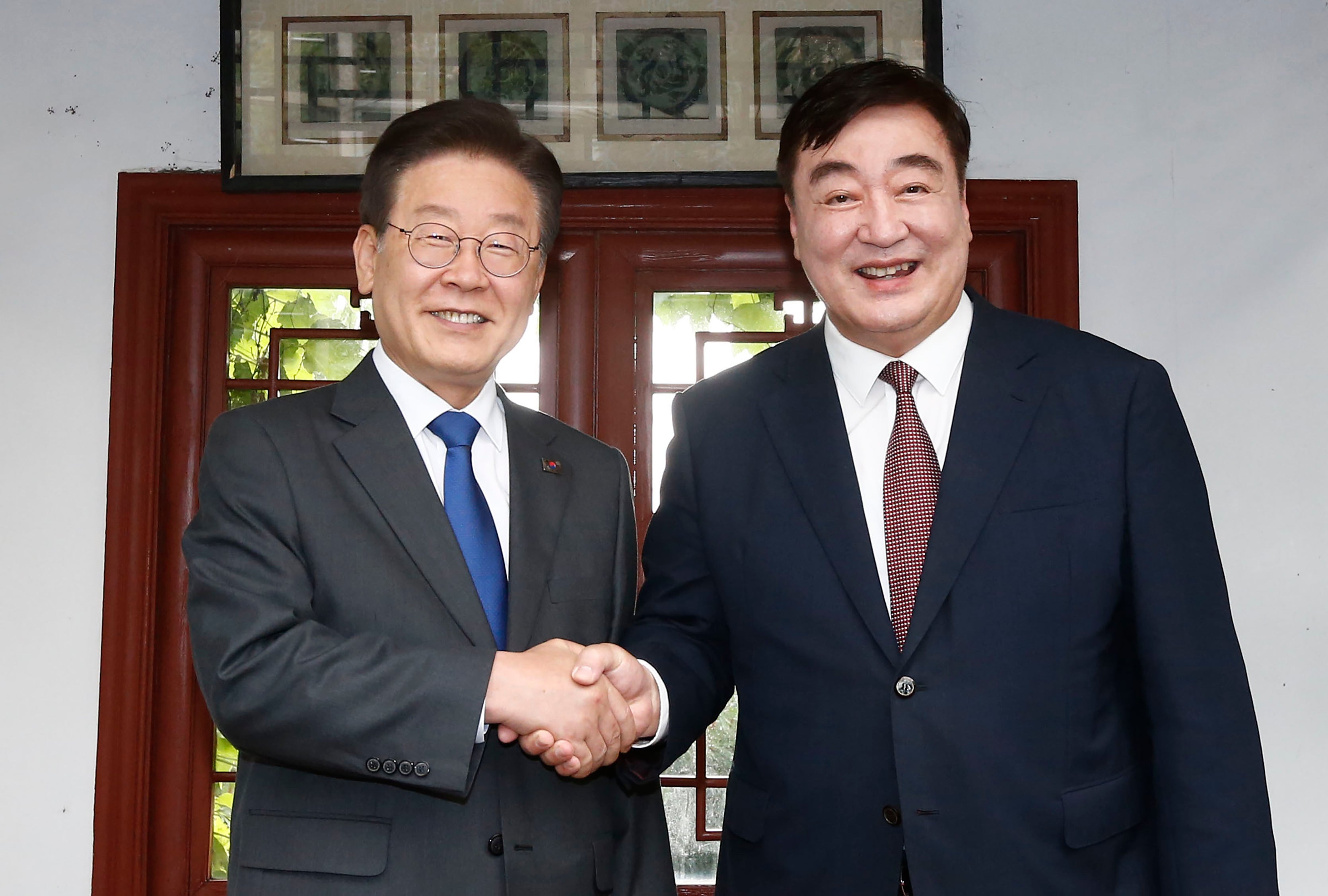China complains to South Korean ambassador in tit-for-tat move after Seoul summoned Beijing's envoy
China's Foreign Ministry says an assistant minister has lodged a complaint with South Korea’s ambassador to China

Your support helps us to tell the story
From reproductive rights to climate change to Big Tech, The Independent is on the ground when the story is developing. Whether it's investigating the financials of Elon Musk's pro-Trump PAC or producing our latest documentary, 'The A Word', which shines a light on the American women fighting for reproductive rights, we know how important it is to parse out the facts from the messaging.
At such a critical moment in US history, we need reporters on the ground. Your donation allows us to keep sending journalists to speak to both sides of the story.
The Independent is trusted by Americans across the entire political spectrum. And unlike many other quality news outlets, we choose not to lock Americans out of our reporting and analysis with paywalls. We believe quality journalism should be available to everyone, paid for by those who can afford it.
Your support makes all the difference.A Chinese official lodged a complaint with South Korea's ambassador to China, in a tit-for-tat move after Beijing's envoy to South Korea was summoned last week over his comments accusing Seoul of tilting toward the United States.
Assistant Foreign Minister Nong Rong expressed dissatisfaction with Seoul's response to last week's meeting between Chinese Ambassador Xing Haiming and a South Korean opposition leader, according to a statement Sunday from China's Foreign Ministry.
Nong said it was Xing's duty to meet with different people in South Korea and he hoped Seoul would reflect on the relationship between the two countries and work with China to promote healthy and stable ties, the statement added.
The diplomatic row between China and South Korea comes amid fierce competition between Washington and Beijing for global influence.
South Korea, whose economy depends greatly on exports of computer memory chips and other technology products, has struggled to strike a balance between the United States, its decades-long military ally, and China, the biggest buyer of its goods.
On Friday, South Korean First Vice Foreign Minister Chang Ho-jin warned Xing over his “senseless and provocative” remarks made during a meeting with South Korean Democratic Party leader Lee Jae-myung, a key rival of conservative President Yoon Suk Yeo.
In the meeting last week, Xing accused Yoon’s government of leaning excessively toward Seoul’s treaty ally, the U.S., and damaging its relations with China.
Xing said South Korea was entirely to blame for the “many difficulties” in bilateral relations, citing its growing trade deficit with China, which he attributed to “de-Chinaization” efforts, apparently referring to actions by South Korean companies to shift their supply chains away from China.
His comments quickly drew ire from Seoul, which accused Xing of violating diplomatic protocols and interfering with South Korean domestic politics.